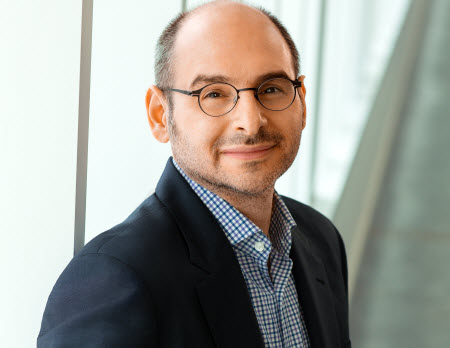Televising the Science Revolution
The smarter way to stay on top of the multichannel video marketplace. Sign up below.
You are now subscribed
Your newsletter sign-up was successful

Science Channel is celebrating its 20th anniversary by enjoying its strongest ratings year among its core adult 25-54 audience in its history. With science-themed programming in the entertainment zeitgeist with such hit shows as CBS’s Big Bang Theory and HBO’s Westworld, Science is feeding its core viewers with creative and informative, star-powered shows like Through the Wormhole With Morgan Freeman, as well as longtime network favorites like Punkin Chunkin, which will make its return to the network this Thanksgiving.
Science Channel general manager Marc Etkind recently spoke to Multichannel News programming editor R. Thomas Umstead about the network’s anniversary as well as the network’s future programming and distribution endeavors.
MCN:So, at the 20-year mark, how would you define the Science Channel brand?
Marc Etkind: I think the brand is to be firmly about science, but also to be broad and popular. We are the place where you can get the latest information on space, technology, engineering and for mind-blowing science questions. We do it with tremendous talent, whether it’s people like Morgan Freeman, who hosts Through the Wormhole on our on our network. One of the things that we’re really proud of is that we’re very timely. We have science news on every night and we cover the latest NASA missions, like the recent mission to Jupiter and Comet mission. We have live cut-ins of launches … It’s a timely and relevant network.
MCN:How has the network’s programming evolved over the past 20 years?
ME: I think what’s been the same over the 20 years is this commitment to quality and to depth of information; that you can come to the Science Channel and you can be entertained, but you can learn something as well. And I think that’s something that we’ve been doing from the very beginning.
This is the No. 1 network for space information, and it’s something that this network has been doing with Through The Wormhole series and other series like Wonders of The Solar System, How The Universe Works, Space’s Deepest Secrets and Punkin Chunkin, which remains the highest-rated show in the network’s history — it’s coming back this year, and we’re super- excited to have that on over Thanksgiving weekend.
The smarter way to stay on top of the multichannel video marketplace. Sign up below.
And then we have a brand new miniseries that we’re launching on Mars coming up this month. I know other networks are doing some space programming and then they do a pretty decent job of it, but if you want space on a regular basis, we are the network for that.
MCN:You mentioned other networks moving into the science genre. Once upon a time, science-themed programming was considered geeky and boring, but now science content is very prevalent on a number of entertainment-based networks. Why has science now become mainstream programming?
ME: I think what’s happening is that we are living in the midst of a science and technology revolution, and things like artificial intelligence are here in some form or another, and driverless cars are going to be here any day. You carry in your pocket a cellphone that’s more powerful than computers 20 years ago. So we are surrounded by science and technology, and so I think there’s a craving to understand it, to know how it works and also to know what’s coming next. And I think we as a network have been able to satisfy that curiosity and that need for more information. So I think we’ve just been growing along with the scientific achievements that have been happening around [us] and establishing ourselves as the place to learn more about that.
MCN:Given that, how does the Science Channel stay competitive in a very crowded and competitive marketplace?
ME: We’ve had a fantastic year so far because we’ve been able to engage and entertain and educate our audience by giving them mind-blowing information on the latest in space.
On the digital side, we’re offering content in VR and our SciGo TV Everywhere app allows people who subscribe to Science to watch their favorite shows whenever they want.
We’re always looking at ways of expanding the brand to make sure that that brand continues on whatever platform the viewers want it to be on. We have a tremendous engagement on Facebook with our superfans, and they come for additional information and the latest science news. So we’re going to continue to engage with our fans across the various platforms.
MCN:How do you see the network evolving over the next 20 years?
ME: When you look at the next 20 years of TV, there’s going to be a huge number of changes that we can’t predict.
It’s like science — it’s a revolution that we can’t predict, but we know when you have a strong brand like Science Channel we’re going to be out there giving our fans the kind of relevant information that they want.
R. Thomas Umstead serves as senior content producer, programming for Multichannel News, Broadcasting + Cable and Next TV. During his more than 30-year career as a print and online journalist, Umstead has written articles on a variety of subjects ranging from TV technology, marketing and sports production to content distribution and development. He has provided expert commentary on television issues and trends for such TV, print, radio and streaming outlets as Fox News, CNBC, the Today show, USA Today, The New York Times and National Public Radio. Umstead has also filmed, produced and edited more than 100 original video interviews, profiles and news reports featuring key cable television executives as well as entertainers and celebrity personalities.

